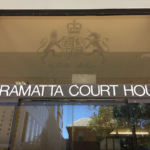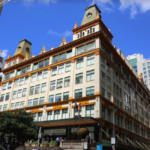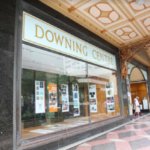The Offence of Contravening an Order to Leave or Not Enter a Court in New South Wales

As New South Wales continues to adjust to the changing nature of the pandemic, new health and safety protocols will be in place in Local Courts until at least 9 May 2022 under the Court Security Act 2005.
The legislation
Section 7 of the Court Security Act provides that:
(1) If a judicial officer considers it necessary for securing order and safety in court premises or a part of court premises, the judicial officer may:
(a) order members of the public generally, or specified members of the public, to leave the court premises or a part of the court premises, or
(b) order members of the public generally, or specified members of the public, not to be admitted to the court premises or a part of the court premises.
The section further makes clear that:
(1A) An order of a judicial officer under this section may have effect for no more than 28 days. However, nothing prevents the judicial officer from renewing the order for a further period not greater than 28 days if the judicial officer considers that the circumstances warrant it.
(1B) An order may be renewed more than once.
(2) A person must not contravene an order of a judicial officer under this section.
Any contravention of the order comes with a fine of 50 penalty units, which currently amounts to $5,500 in New South Wales.
No entry to the Local Court
One of these protocols that is in place under the section is that any member of the public who does not have a legitimate reason, for example a particular matter listed before the Local Court, will not be admitted to Local Court premises.
Those directly involved in court matters, such as criminal defence lawyers, prosecutors, defendants, witnesses and complainants may attended – and the latter, including alleged victims and ‘persons in need of protection’ in apprehended violence order cases, may bring up to two support people with them to court
Masks and physical distancing
Anyone who attends the Local Court must:
- Wear a fitted face covering or mask; and
- Where practicable, maintain a physical distance of 1.5m from each other and other court-users
Exemptions
Those who do not wish to wear a face covering must provide evidence that this is not appropriate; such as a documented medical exemption.
Public access
If you are not directly involved in the proceedings, you can make an application to the Magistrate to be permitted access.
Applications will only be granted in circumstances where the magistrate is of the opinion that the need for access can be appropriately balanced with the need to ensure the safety and protection of those working within the court.
NSW Government eases Covid restrictions
The changes to Local Court protocols come at the same time as the New South Wales Government scraps isolation rules for close contacts and quarantine for unvaccinated travellers.
In recent days the NSW Government has also lifted the public health orders that require key workers to be vaccinated.
While epidemiologists have expressed some reservations about the changes, especially considering that variants of Covid-19 are still active in the community, and some are highly contagious, the New South Wales Government believes that it is time to move forward, and enough members of the public have been vaccinated to reduce the major risks posed by Covid.
Of course, the other reason is that retaining pandemic restrictions – particularly for close contacts – is causing a lot of disruption to the workforce as struggling businesses try to get back on their feet.
Changes to quarantine and isolation rules
In cases where quarantine and home isolation have been scrapped, people are required to wear masks indoors (if you need to be around the infected person) and conduct regular RAT tests. Positive Covid tests are still required to be reported with NSW Health, through the NSW Services App. The App not only registers the patient, but provides support in terms of where to find the right medical advice in your local area.
A ‘close contact’ is defined by the NSW Department of Health as: Someone who lives in the same house as a positive COVID-19 case, or someone who has spent four or more hours with a positive case in a home, or health facility or aged care environment or similar.
Anyone who tests positive for Covid is required to remain in home isolation for at least seven days.
Unvaccinated international travellers arriving into New South Wales from overseas must take a RAT test within 24 hours of arrival and if the Covid test is positive, seek further advice from NSW Health.
NSW vaccination mandates for key workers with the exception of aged care workers and disability carers are finally over – announced without any of the same fanfare with which they were brought in.
This will be welcome news for many, although it is still possible for businesses and organisations to have their own workplace health and safety policies in place which may require employees to be vaccinated.
It is still necessary to wear a mask on any form of public transport – aeroplanes, buses and trains.
Public health laws differ between jurisdictions
In removing the remaining Covid-19 restrictions, the NSW Government and the Victorian Government are working in ‘lock-step’ – meaning that they are aiming, where possible, to have the same or similar rules across each state.
This is also sensible. However, Queensland, Tasmania, South Australia, Northern Territory and Perth still have some restrictions in place which are not necessarily the same as those in New South Wales and Victoria and so travellers are reminded to keep checking government updates if they’re crossing borders.
The Government will announce further updates in the coming days as NSW Schools finish Easter Holidays and head into term two.
Because the traditional ‘flu season’ is not far away, people are being asked to ‘be sensible’ and stay home if they are unwell, and to practice good hygiene and social distancing where possible, particularly in crowded public spaces.







